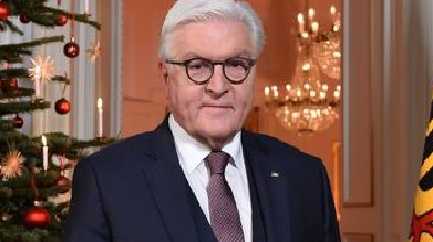
TOKYO (AP) — German President Frank-Walter Steinmeier on Tuesday stressed his country’s increased defense cooperation with Japan and other democracies in the Indo-Pacific region faced with security challenges such as Russia’s war in Ukraine and China’s rise.
Steinmeier, after holding talks with Japanese Prime Minister Fumio Kishida, told a joint news conference that Germany and other countries “committed to freedom and democracy are standing up together and sending signals that they want to stick to the international rules-based order.”
He said Germany and Japan have been strengthening their political and security ties, citing the first visit by a German frigate in about 20 years last year and joint exercises by three German fighter jets in September as examples of their growing defense links.
The arrival of the German fighters was part of the country’s naval deployment to the Indo-Pacific region from August for joint exercises with some countries in the region, including Australia and New Zealand.
Germany adopted a defense guideline in 2020 focusing on the Indo-Pacific region and has since stepped up its military ties with Japan. The two sides signed an agreement last year on the protection of classified information exchanges and held their first security talks involving defense and foreign ministers in June.
Another meeting of defense and foreign ministers, known as “two plus two,” is to be held later this week in Germany.
Kishida said he told Steinmeier that Japan is determined “to drastically strengthen Japan’s defense capabilities within five years and to secure a substantial amount of defense budget to back it up.”
He said Japan, while maintaining the Japan-U.S. security alliance as a foundation, wants to promote “a multi-layered security cooperation with like-minded countries” and confirmed the strengthening of cooperation between Japan and Germany.
Japan considers China as a growing security threat and has reinforced its military role and spending over the past decade. It has stepped up defense cooperation, information sharing and exercises with Indo-Pacific countries and Europe.
Kishida and Steinmeier said they also agreed to deepen cooperation in economic security, decarbonization efforts, sanctions against Russia and support for Ukraine.
Steinmeier, on a three-day visit to Japan, also is to meet with Japanese and German business representatives, visit Kyoto to meet officials and students and tour a Panasonic fuel cell plant in nearby Kusatsu City before heading to South Korea on Thursday.




